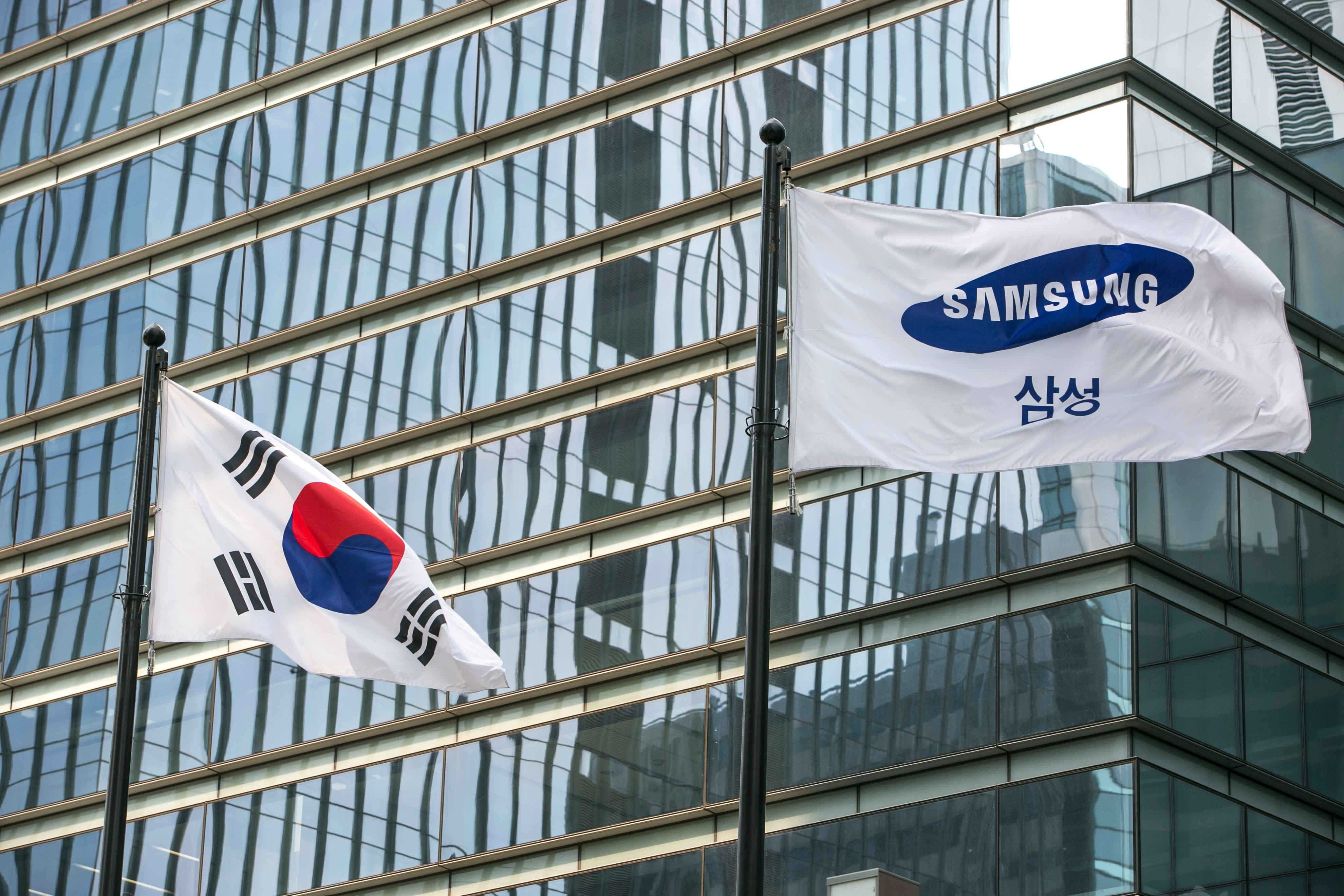
A South Korean flag, left, and Samsung Electronics Co. flag fly outside the company's headquarters in Seoul, South Korea.
Jean Chung| Bloomberg | Getty Images
Samsung Electronics said Wednesday that profits for the three months that ended June more than halved from a year earlier due to falling memory chip prices.
Operating profit for the quarter came in at 6.6 trillion Korean won ($5.6 billion), the world's largest smartphone maker said. Its consolidated revenue was at 56.13 trillion won.
"The weakness and price declines in the memory chip market persisted as effects of inventory adjustments by major datacenter customers in the previous quarters continued, despite a limited recovery in demand," Samsung said in a news release.
Those numbers were slightly better than the guidance the company provided earlier this month.
Samsung said its semiconductor business posted consolidated revenue of 16.09 trillion won and an operating profit of 3.4 trillion won for the quarter. The company said its memory unit saw increased demand despite weak market conditions. For the second half of the year, Samsung said, "demand is expected to grow although the Company sees volatility in the overall industry due to increased external uncertainties."
Memory components, which are used in mobile handsets and enterprise servers, make up Samsung's main profit-making business.
This is the second consecutive quarter where the South Korean tech giant's operating profit more than halved from the same period a year earlier. In the three months that ended March, Samsung's profits fell about 60% on-year to 6.2 trillion Korean won ($5.3 billion).
The global semiconductor industry is undergoing a period of inventory adjustment that is keeping demand low and causing a supply glut, which is squeezing prices. Analysts have said they expect a recovery to get underway in 2020.
Last week, Samsung rival SK Hynix reported its smallest quarterly earnings in three years, missing an industry estimate.
South Korean chipmakers have another cause for concern: An ongoing dispute between Japan and South Korea resulted in Tokyo restricting exports of crucial high-tech materials that are used by the likes of Samsung and SK Hynix to make chips and smartphone displays.
While the short-term impact of the restriction is expected to be limited due to high inventory levels, analysts have said companies may face longer term difficulties in sourcing for alternatives. While that could potentially help push up chip prices, it is likely to make smartphones and other electronics more expensive.
— Reuters contributed to this report.
No comments:
Post a Comment